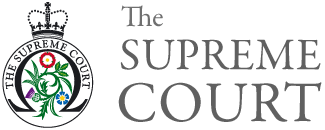R (on the application of Coughlan) (Appellant) v Minister for the Cabinet Office (Respondent) [2022]
UKSC 11 On appeal from: [2020] EWCA Civ 723
Date:27 April 2022
Justices
Lord Reed (President), Lord Sales, Lord Hamblen, Lord Stephens, Dame Siobhan Keegan
Background to the Appeal
This appeal concerns a challenge brought by Mr Coughlan to orders made by the Minister for the Cabinet Office in respect of Braintree District Council and nine other local authorities (“the Pilot Orders”). These Pilot Orders authorised schemes to temporarily change the rules set out in secondary legislation governing local elections. These schemes, which were implemented in ten local authority areas in respect of the local government elections in May 2019, each introduced a new requirement for some form of voter identification for those local elections.
Mr Coughlan is a resident of the Braintree area who challenged the lawfulness of the Pilot Orders. His challenge was dismissed on the merits in the High Court. The Court of Appeal granted permission to appeal this decision in view of the “important constitutional function served by local government elections.” Mr Coughlan’s appeal was dismissed on the merits by the Court of Appeal. Mr Coughlan appealed to the Supreme Court.
The primary issue in the appeal was whether the Pilot Orders were made ultra vires, that is outside the legal powers of the Minister for the Cabinet Office, because the pilot schemes they sought to establish were not schemes within the meaning of section 10(2)(a) of the Representation of the People Act 2000.
The second issue in the appeal was whether the pilot schemes were authorised for a lawful purpose under section 10(1) of the Representation of the People Act 2000, consistent with the policy and objects of that Act.
The appeal does not concern the merits or otherwise of the decision to introduce the pilot schemes, nor the merits of voter identification schemes in general, but only whether the decision to introduce the pilot schemes was lawful. The Runnymede Trust, Operation Black Vote, Voice4Change England, LGBT Foundation and Stonewall were given permission to intervene by written submissions.
Judgment
The Supreme Court dismisses the appeal. Lord Stephens gives the judgment, with which Lord Reed, Lord Sales, Lord Hamblen and Dame Siobhan Keegan agree.
Reasons for the Judgment
In respect of the primary issue, the Court finds that the Pilot Orders were not made ultra vires. Section 10 of the Representation of the People Act 2000 is titled “Pilot schemes for local elections in England and Wales”. Section 10(1) enables the Minister for the Cabinet Office by secondary legislation “to make such provision for and in connection with the implementation of a scheme as he considers appropriate”. However, that power to make secondary legislation is limited to a scheme within the meaning of section 10(2). Section 10(2)(a) provides for schemes as regards “… how voting at the elections is to take place” [9].
Having regard to the relevant principles of statutory interpretation [12 – 18], the legislative framework for local government elections [18 – 22], and the content of the pilot schemes in question [23 – 24], the Court finds that the pilot schemes were schemes within the meaning of section 10(2)(a) of the Act, and in particular, that they were schemes as regards “… how voting at the elections is to take place” [57, 76].
In respect of the second issue, the Court finds that the pilot schemes were authorised for a lawful purpose under section 10(1) of the Representation of the People 2000 Act. The Court finds that the purpose of section 10 is to facilitate pilot schemes to enable the gathering of information to assist in the modernisation of electoral procedures in the public interest. The Pilot Orders were made to promote that object, and accordingly, were authorised for a lawful purpose [77].
References in square brackets are to paragraphs in the judgment
Note
This summary is provided to assist in understanding the Court’s decision. It does not form part of the reasons for the decision. The full judgment of the Court is the only authoritative document. Judgments are public documents and are available online. Decided cases
